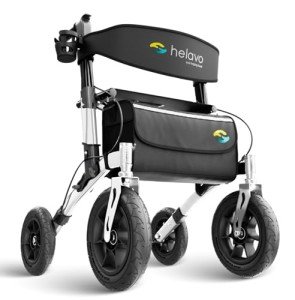A Comprehensive Guide to Medical Walkers: Enhancing Mobility and Independence
In the realm of healthcare, mobility plays an important function in rehabilitation and total well-being, particularly for seniors and those recovering from injuries. Among the myriad of mobility help readily available today, medical walkers stand out as flexible tools that help with motion and boost independence. This post will dive into the types, advantages, considerations, and FAQs concerning medical walkers.
What is a Medical Walker?
A medical walker, typically referred to as a walking frame, is a helpful device designed to help people with mobility obstacles stroll with greater stability and ease. Walkers provide a wider base of support compared to canes and crutches, making them ideal for those with balance problems or minimal strength.
Kinds Of Medical Walkers
| Type | Description | Features |
|---|---|---|
| Requirement Walker | A fundamental four-legged frame without wheels, used mostly for stability. | Lightweight, sturdy, adjustable height, suitable for indoor and outdoor use. |
| Wheeled Walker (Rollator) | A walker with wheels on the front legs, permitting simpler motion. | Equipped with hand brakes, a seat for resting, and storage alternatives. |
| Hemi Walker | A walker developed for people who can use one arm and require support. | Lightweight and compact, features a curved handle for easier gripping. |
| Bariatric Walker | Created for bigger individuals, offering increased weight capability and stability. | Improved durability, wider frame, and encouraging features for much heavier users. |
| Knee Walker | An unique choice for those with leg injuries, allowing them to rest the knee. | A platform to support the hurt leg, steering capabilities, and brakes. |
Advantages of Using a Medical Walker
- Enhanced Stability: Walkers provide additional points of contact with the ground, resulting in a more stable walking experience.
- Increased Independence: Users can browse their environment without needing assistance, enhancing confidence and self-reliance.
- Improved Safety: The risk of falls is considerably decreased, as walkers offer support to those with balance concerns.
- Flexible Usage: Many walkers are designed for both indoor and outdoor use, adapting to different surfaces.
- Assistance throughout Rehabilitation: Medical walkers are important during recovery from surgical treatments, injuries, or health problems.
Considerations When Choosing a Medical Walker
When picking a medical walker, numerous factors ought to be born in mind:
| Consideration | Description |
|---|---|
| User's Condition | Examine the person's strength, coordination, and particular needs. |
| Devices Weight | Ensure the walker is lightweight enough for easy handling but strong enough for support. |
| Adjustable Height | The walker must be adjustable to fit the user's height for optimum convenience and performance. |
| Hand Grip Comfort | Check that the grips are comfortable to hold for extended durations. |
| Weight Capacity | Guarantee the walker can support the user's weight, especially for bariatric walkers. |
| Storage Needs | Figure out if extra features like baskets or trays are needed for bring products. |
Regularly Asked Questions (FAQs)
- How do I determine if I require a walker?If you experience difficulty in preserving balance, feel unstable walking, or need assistance on flat surfaces or slopes, it's advisable to speak with a health care expert for an evaluation. Can I use a walker outdoors?Yes, specifically designed
- walkers with larger wheels(wheeled walkers or rollators)appropriate for outdoor usage and can deal with numerous terrains successfully. How do I preserve my walker?Regularly inspect the walker for loose parts, make sure wheels are oiled if
- relevant, and clean it as needed. Consult
the maker's standards for particular maintenance directions. Are walkers covered by insurance?Many insurance prepares deal coverage for walkers, however it is important to contact your supplier to comprehend your specific policy - information. Can a walker aid with physical therapy?Yes, using
a walker can support rehabilitation efforts by providing stability throughout workouts advised by physio therapists. Medical walkers are indispensable tools that not - only assist in movement and independence but also significantly enhance the quality of life for people dealing with mobility challenges. With different types readily available, choosing the best walker is
essential to meeting specific needs. The journey to gaining back mobility can be challenging, but with the ideal devices and support, people can overcome barriers and reclaim their self-reliance. By understanding the types of walkers, their advantages, and necessary considerations, users can make informed options-- leading to a safer, more confident way of moving through life. Whether www.mymobilityscooters.uk 's a rollator for outdoor experiences or an easy walker for indoor navigation, the ideal walker can open doors to newly found freedom and improvement in every day life.

